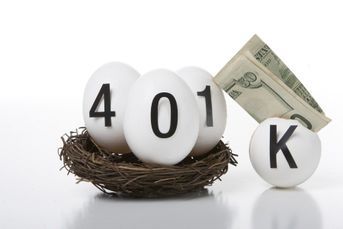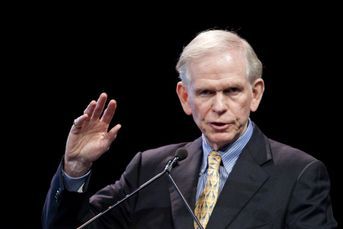Bernanke sees headwinds fading as U.S. poised to grow
In speech to fellow economists, Fed chief reflects on eight-year tenure.
Ben S. Bernanke said the headwinds that have held back the U.S. economy may be abating, leaving the country poised for faster growth as his tenure as Federal Reserve chairman comes to an end.
“The combination of financial healing, greater balance in the housing market, less fiscal restraint, and, of course, continued monetary policy accommodation bodes well for U.S. economic growth in coming quarters,” Mr. Bernanke said Friday in a speech in Philadelphia. “Of course, if the experience of the past few years teaches us anything, it is that we should be cautious in our forecasts.”
Mr. Bernanke used his remarks to reflect on his eight years as leader of the U.S. central bank, steering the economy through the most severe economic and financial crisis since the 1930s. Policy makers last month trimmed the Fed’s monthly bond buying to $75 billion from $85 billion, taking a first step toward unwinding unprecedented stimulus engineered by Mr. Bernanke to put millions of unemployed Americans back to work.
He said the decision to taper bond purchases “did not indicate any diminution of its commitment to maintain a highly accommodative monetary policy for as long as needed.”
Mr. Bernanke cited payroll employment rising by 7.5 million since 2010 and the economy growing in 16 of the 17 quarters after the recession ended as evidence the Fed’s policies, which also included providing more information on the likely future path of interest rates, have succeeded.
‘Considerable Progress’
“The economy has made considerable progress since the recovery officially began some four and a half years ago,” the 60-year-old former Princeton University professor said to a standing-room-only audience at the annual meeting of the American Economic Association. His tenure ends Jan. 31.
“He sounded cautiously optimistic on the economy, probably more optimistic than you’ve heard him sound for most of his eight years,” said Michael Feroli, chief U.S. economist at JPMorgan Chase & Co. “Having his last speech in front of economists rather than in front of Congress is a way to go out on a high note.”
Mr. Bernanke’s speech was followed by praise from Anil Kashyap, a professor at the University of Chicago’s Booth School of Business and Kenneth Rogoff of Harvard University.
“My joke is that he did not want the first sentence of his Wikipedia page to be ‘Ben Bernanke, he studied the Great Depression and then caused the next one,’ and so he made sure that was not the case,” Mr. Kashyap said. He then shared with the audience a musical tribute to Mr. Bernanke, set to the tune of “Rudolph the Red-Nosed Reindeer.”
Averting Depression
Mr. Bernanke in his remarks highlighted his efforts at averting a depression.
“When the economy was in free fall in late 2008 and early 2009, such improvement was far from certain, as indicated at the time by stock prices that were nearly 60 percent below current levels and very wide credit spreads,” Mr. Bernanke said.
The Standard & Poor’s 500 Index, which hit a record last month and rose 30% last year, fell less than 0.1% Friday to 1,831.37. The yield on the benchmark 10-year Treasury note was little changed at 2.99%.
The Fed’s bond buying helped reduce unemployment to a five-year low of 7% in November while swelling the Fed’s balance sheet to $4.02 trillion. Policy makers, including Philadelphia Fed President Charles Plosser, have said the purchases raise the long-term risk of inflation and may create financial market distortions such as asset-price bubbles.
Mr. Bernanke defended the programs in his remarks today, saying that “for the most part” academic research supports the conclusion that bond purchases and clearer communication from the Fed have “helped promote the recovery.”
Under Mr. Bernanke, the Fed began publishing its economic forecasts more frequently, established explicit goals for inflation and unemployment, released projections of future interest rates and began holding quarterly press conferences.
Mr. Bernanke said the steps have made Fed policy effective and are important for “supporting the institution’s democratic legitimacy.”
At the same time, Mr. Bernanke has sought to prevent Congress from allowing audits of the central bank’s monetary-policy decision making, saying that such audits could infringe the Fed’s independence.
Legislation that would open the Fed’s policy to scrutiny from lawmakers was proposed by former Representative Ron Paul of Texas and his son, Senator Rand Paul of Kentucky, both Republicans. The proposal is known as “Audit the Fed.”
LEGISLATION ‘MISNAMED’
“That legislation is misnamed,” Mr. Bernanke said. “It’s not about auditing in any common sense at all.” The Fed’s financial books are audited, he said, and “we’ve always had a very good record there.”
The Federal Open Market Committee, scheduled to meet Jan. 28-29, will probably reduce its purchases in $10 billion increments over the next seven meetings before ending them in December, according to a Bloomberg News survey of economists after the FOMC announced its tapering on Dec. 18.
Recent economic reports have affirmed Mr. Bernanke’s comment at a Dec. 18 news conference that “the economy is continuing to make progress.”
Manufacturing grew last month at the second-fastest pace in more than two years, fueled by a gain in orders that will help propel the expansion, according to a report Friday from the Institute for Supply Management.
Outlays for construction projects climbed in November to the highest level since March 2009 as homebuilding and non-residential spending made up for government cutbacks, according to data from the Commerce Department.
U.S. house prices rose in October from a year ago by the most in more than seven years, according to the S&P/Case-Shiller index of property prices in 20 cities. All 20 cities in the index showed a year-over-year gain, led by a 27.1% advance in Las Vegas.
The Fed has said it will buy bonds until the outlook for the labor market has “improved substantially.” Mr. Bernanke told reporters on Dec. 18 the program was on its way to meeting that test, noting “meaningful cumulative progress” since the start of a third round of asset purchases in Sept. 2012.
The central bank coupled its decision to taper with a stronger commitment to maintaining an accommodative policy. The benchmark interest rate will probably remain low “well past the time that the unemployment rate declines below 6.5%,” especially if projected inflation continues to run below the Fed’s 2% goal, the FOMC said.
Mr. Bernanke, a Great Depression scholar, served on President George W. Bush’s Council of Economic Advisers. He didn’t elaborate on Dec. 18 when asked about his plans after leaving the Fed, other than to say that he and his wife “will stay in Washington for a bit of time.”
Fed Vice Chairman Janet Yellen has been nominated to succeed Mr. Bernanke. The Senate vote on her nomination is scheduled for Jan. 6.
(Bloomberg News)
Learn more about reprints and licensing for this article.








